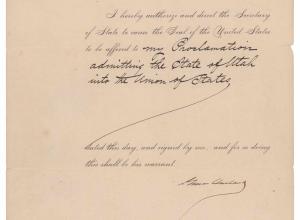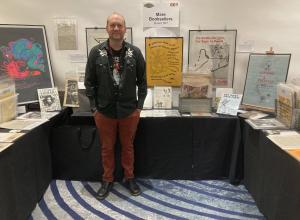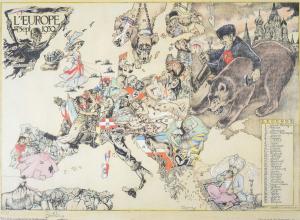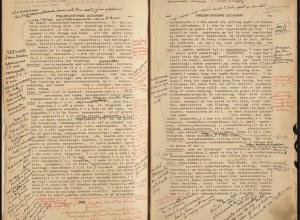Rare Handwritten War Poem by A.E. Housman for Sale at Bonhams
A handwritten draft of a war poem by A. E. Housman, whose Shropshire Lad cycle of poems was among soldiers’ favourite reading in the trenches in the First World War, is to be sold at Bonhams First World War Centenary Sale in London on 1 October. It is estimated at £10,000-15,000.
The poem, Epitaph on an Army of Mercenaries, was Houseman’s retort to German insults at the beginning of the war that the British army—which was a professional force—was fighting for money and not patriotism. The much larger French, Russian and German armies were mainly made up of conscripts. Housman uses the concept of mercenary ironically to honour the British soldiers who fought and died at the Battle of Ypres in October 1914. These ‘Old Contemptibles’ as they called themselves, saved the nation and paid with their lives.
“Their shoulders held the sky suspended;
They stood, and earth’s foundations stay;
What God abandoned, these defended
And saved the sum of things for pay.”
The eight line poem was published in The Times in October 1917 and the draft, which was written in pencil, shows Housman’s deletions and revisions.
Working drafts by Housman are vey rare mainly because the poet left instructions to his brother Laurence to destroy them although he did give him discretion to retain any documents he felt would be worth keeping. The reason for saving this particular sheet probably lies with the poem, Oh were he and I together, written on the back of it. The text, again in pencil, is very faint and a deliberate attempt has been made to erase it but Laurence Housman clearly felt it should be retained.
The poem was never published in Housman’s lifetime though he did consider including it in his 1922 volume, Last Poems, only to withdraw it at the proof stage. Some critics have read the poem as a reference to Housman’s brother Herbert who died in the Boer war. Others believe the work refers to his unrequited love for his Oxford University friend Moses Jackson who had married and emigrated in 1897. Whichever interpretation is correct, the poem clearly caused some soul searching for both Housman and his brother.
Housman’s family and friends almost certainly knew of his deep attachment to Moses Jackson and on A.E.s death in 1936, Laurence consulted another of the poet’s close friends, Alfred Pollard, about what to do with the more intimate material in his brother’s papers. Pollard recommended that he keep them which accounts for the fact that this very personal hand written work survives.















